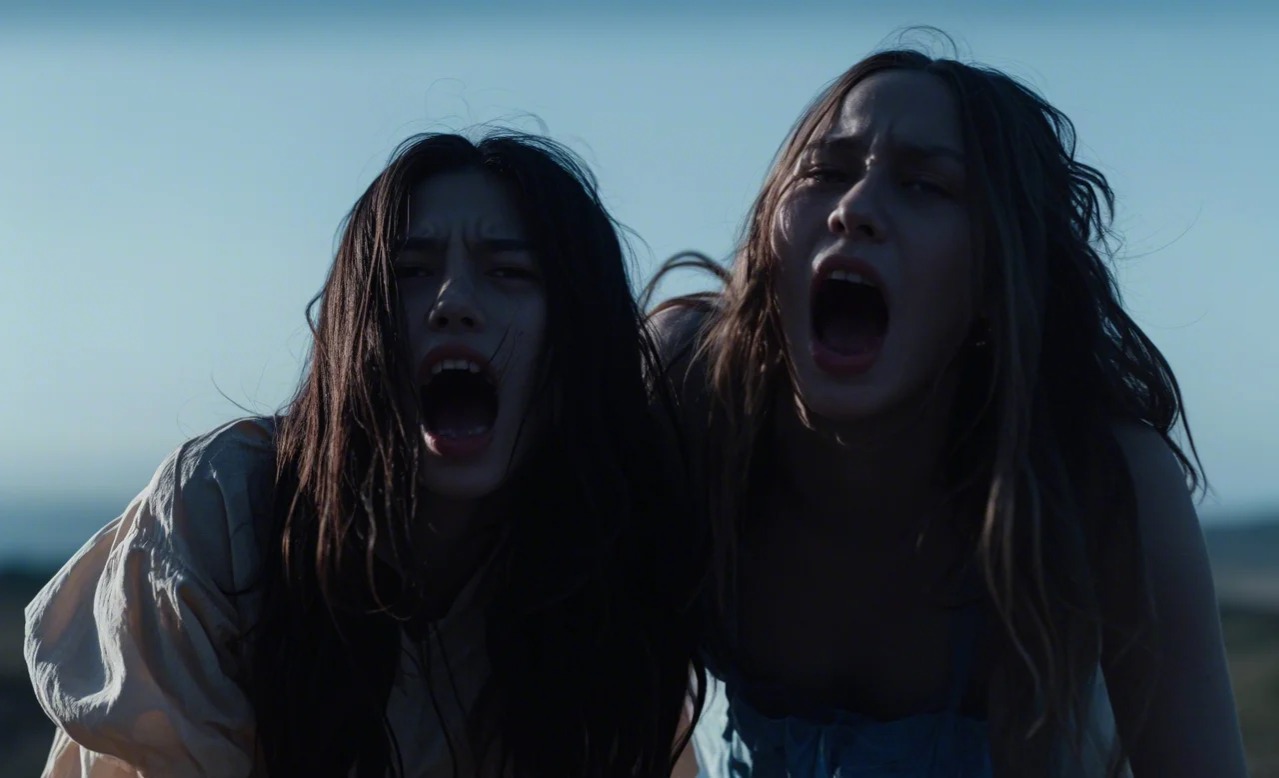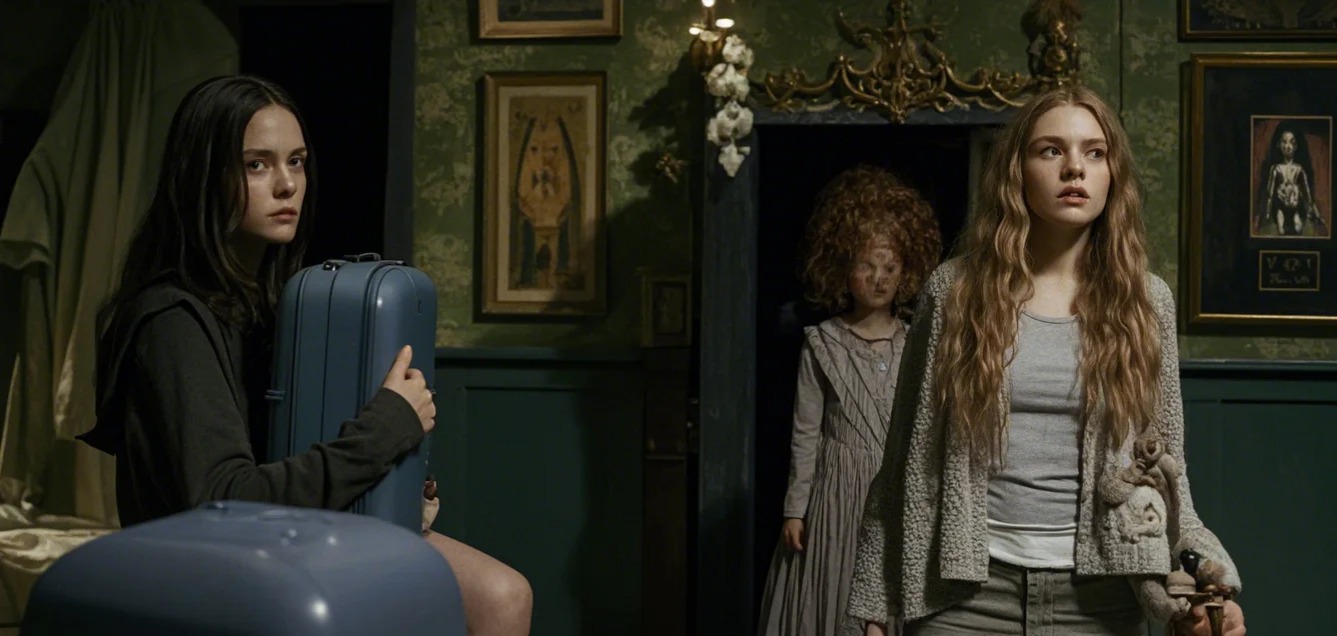“Ghostland” (2018): A Haunting Descent into Fear and Survival
Incident in a Ghostland Official Trailer #1 (2018) Horror Movie HD
In the realm of modern horror cinema, Ghostland (2018), directed by Pascal Laugier (Martyrs), emerges as a chilling masterpiece that leaves audiences spellbound. A twisted tale of survival, trauma, and the human spirit, Ghostland weaves a terrifying narrative that delves deep into psychological horror while simultaneously challenging perceptions of reality.
Plot Overview: A House of Nightmares
The film opens with a seemingly simple premise: a mother, Pauline (Mylène Farmer), inherits an eerie, isolated house in the countryside. She moves in with her two daughters, Beth (Emilia Jones), an aspiring horror writer, and Vera (Taylor Hickson), her skeptical and defiant sister. However, their arrival turns into a nightmarish ordeal when they are attacked by two deranged intruders, sparking an unrelenting chain of terror.
Years later, Beth — now a successful horror author — returns to the house, drawn back to confront her past. What follows is a dizzying descent into psychological torment, where the boundaries between memory, reality, and imagination blur. Each revelation is more disturbing than the last, unraveling the layers of trauma and survival in a story that refuses to offer comfort.

A Masterclass in Atmosphere and Tension
Pascal Laugier proves once again why he is a force in the horror genre. With Ghostland, he crafts a film drenched in claustrophobic dread. The house itself becomes a central character — an ominous, labyrinthine prison filled with grotesque dolls and decaying rooms that evoke childhood nightmares. Every creak, shadow, and unsettling silence amplifies the tension, pulling viewers deeper into the unsettling world Laugier has built.
The cinematography is both haunting and beautiful. Dimly lit hallways, distorted reflections, and quick, disorienting edits mirror the fractured psyche of the characters. The house feels alive, its darkness suffocating. The film doesn’t rely on cheap jump scares; instead, it cultivates an unrelenting sense of dread that lingers long after the credits roll.
Themes: Trauma, Survival, and the Power of the Mind
At its core, Ghostland is not just a horror film — it is a raw exploration of trauma and the ways in which the mind copes with unimaginable horror. The movie raises uncomfortable questions: How does the psyche shield itself from suffering? What is reality when memory becomes a refuge? Laugier doesn’t shy away from pushing his characters, and his audience, to their emotional limits.
The theme of survival is front and center, particularly in the relationship between the sisters. Beth’s imaginative mind and Vera’s raw will to fight stand as two contrasting — yet equally vital — survival mechanisms. While one escapes into fantasy, the other confronts the brutality head-on. This dynamic becomes the heart of the film, grounding the horror in deeply human struggles.

Powerful Performances: Acting that Haunts
The performances in Ghostland elevate the film to another level. Young actresses Emilia Jones (Beth) and Taylor Hickson (Vera) deliver gut-wrenching portrayals of terror and resilience. Their expressions of fear, confusion, and determination are so raw and believable that it’s impossible not to empathize with their plight. Mylène Farmer’s portrayal of the mother adds emotional weight to the story, her stoic strength balancing the chaos around her.
The physicality of the performances is striking. Hickson and Jones endure grueling scenes of violence and psychological torment that feel disturbingly real. Their commitment to their roles enhances the film’s impact, making it impossible to look away, even when the horror becomes almost unbearable.
GHOSTLAND Bande Annonce VF (2018)
Why Ghostland Stands Out in Modern Horror
What sets Ghostland apart from typical horror films is its willingness to push boundaries. It doesn’t settle for cheap thrills; it plunges viewers into a relentless nightmare that explores the darkest corners of the human psyche. Laugier’s signature blend of brutality and beauty is on full display, challenging viewers to confront fears both physical and psychological.
The film also succeeds in its unpredictability. Twists and revelations emerge at the perfect moments, forcing viewers to re-evaluate everything they’ve seen. Laugier masterfully manipulates expectations, ensuring that Ghostland is as much a psychological puzzle as it is a horror experience.
A Controversial and Divisive Masterpiece
Like Laugier’s previous work, Ghostland is not for the faint of heart. Its graphic violence and deeply unsettling themes have sparked debates among critics and audiences. Yet, it is this very willingness to provoke and disturb that makes the film unforgettable. It forces viewers to engage with the horror on an emotional and intellectual level, creating a visceral experience that lingers long after the final frame.
INCIDENT IN A GHOSTLAND Official Trailer (2018) Thriller HD
Conclusion: A Modern Horror Classic
Ghostland (2018) is more than just a terrifying film — it is an exploration of trauma, survival, and the limits of human endurance. Pascal Laugier delivers a haunting, deeply unsettling masterpiece that challenges the conventions of horror storytelling. With its immersive atmosphere, powerful performances, and thought-provoking themes, Ghostland cements itself as one of the most unforgettable horror films of the modern era.
If you dare to step into this house of nightmares, prepare yourself for a journey that is as terrifying as it is thought-provoking. Ghostland will haunt your mind, test your nerves, and leave you questioning what is real — and what lies hidden in the darkness.
